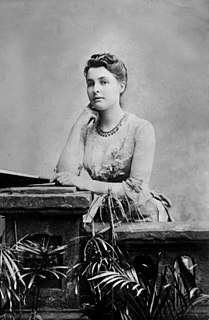A Quote by Ralph Waldo Emerson
Most of the classical citations you shall hear or read in the current journals or speeches were not drawn from the originals, but from previous quotations in English books.
Related Quotes
In fact, many of the quotes in my books are quotes which were translated from English and that I read already translated into Spanish. I'm not really concerned with what the original version in English was, because the important thing for me is that I received them already translated, and they've influenced my original worldview as translations, not as original quotations.
Few people ask from books what books can give us. Most commonly we come to books with blurred and divided minds, asking of fiction that it shall be true, of poetry that it shall be false, of biography that it shall be flattering, of history that it shall enforce our own prejudices. If we could banish all such preconceptions when we read, that would be an admirable beginning.
Bayle, when writing on "Comets," discovered this; for having collected many things applicable to his work, as they stood quoted in some modern writers, when he came to compare them with their originals, he was surprised to find that they were nothing for his purpose! the originals conveyed a quite contrary sense to that of the pretended quoters, who often, from innocent blundering, and sometimes from purposed deception, had falsified their quotations. This is an useful story for second-hand authorities!
The current publishing scene is extremely good for the big, popular books. They sell them brilliantly, market them and all that. It is not good for the little books. And really valuable books have been allowed to go out of print. In the old days, the publishers knew that these difficult books, the books that appeal only to a minority, were very productive in the long run. Because they're probably the books that will be read in the next generation.
we have not been impressed with any attribute of the Senate other than its appearance and manners. We have heard the best speakers: they all fire off speeches which deal with the entire subject in general terms and which do not attempt to debate, to answer opponents' arguments or offer new points for discussion. And the speeches are constantly degenerating into empty rhetoric; they abound in quotations from well-known authors or from their own former speeches.









































